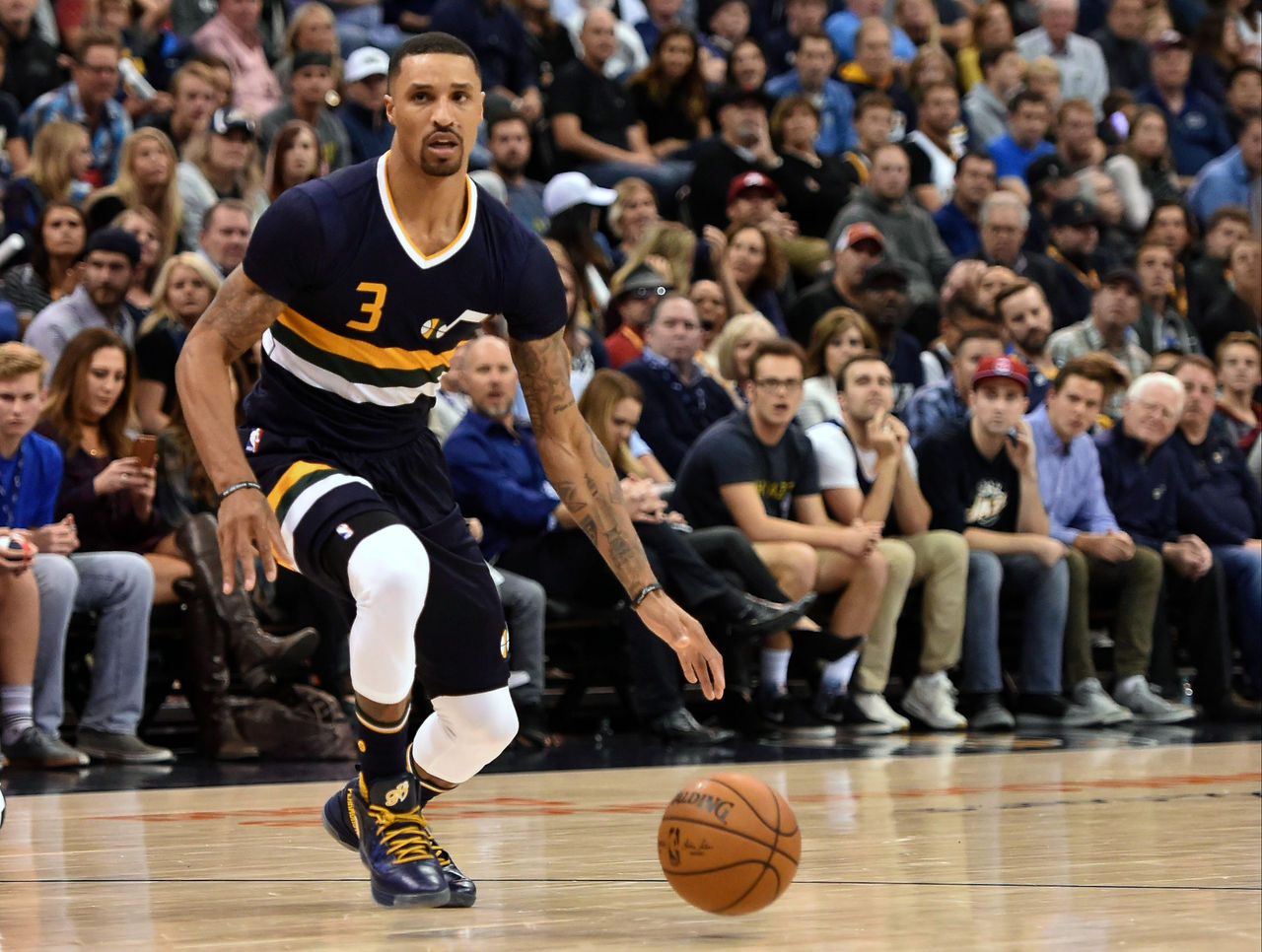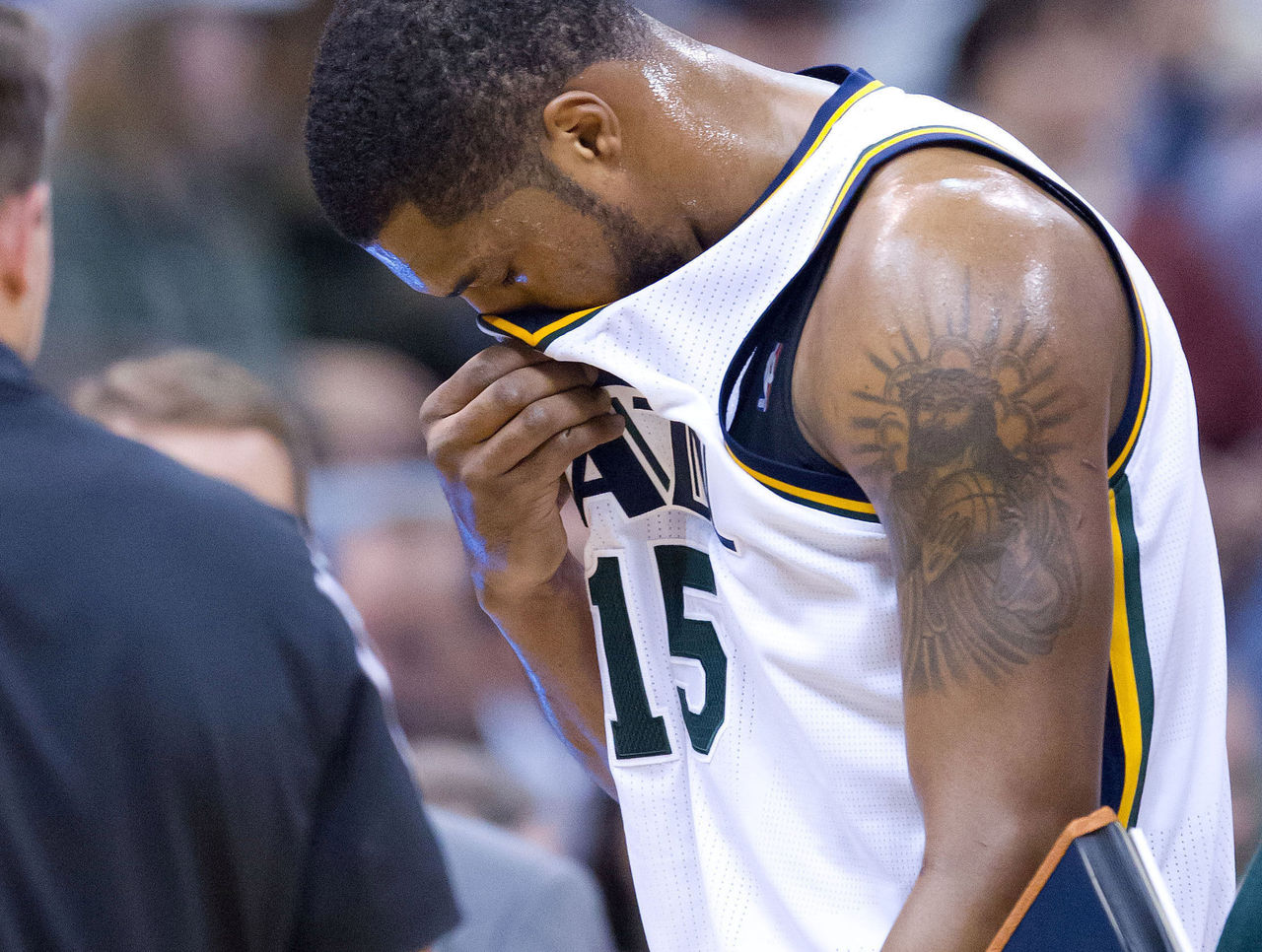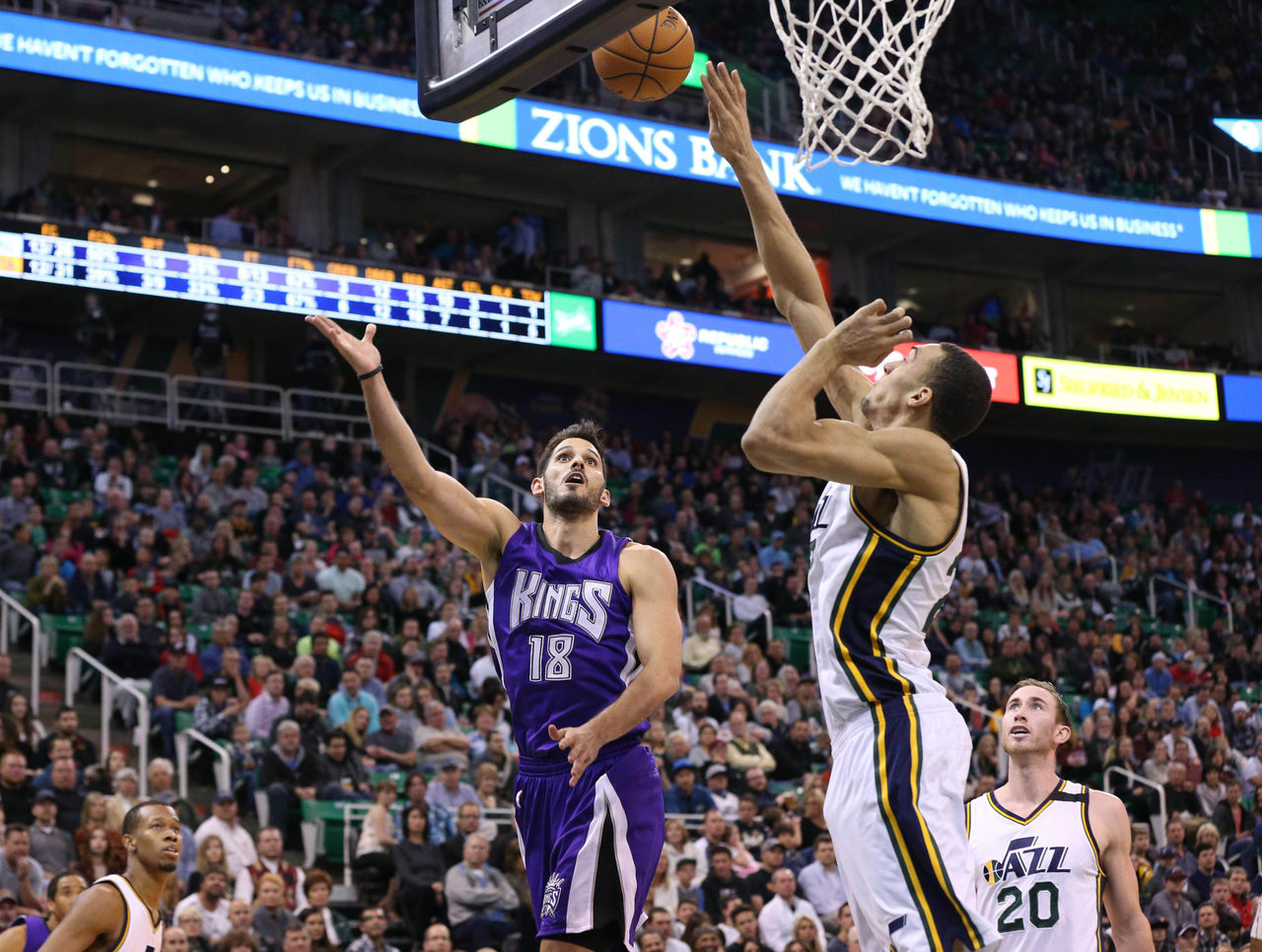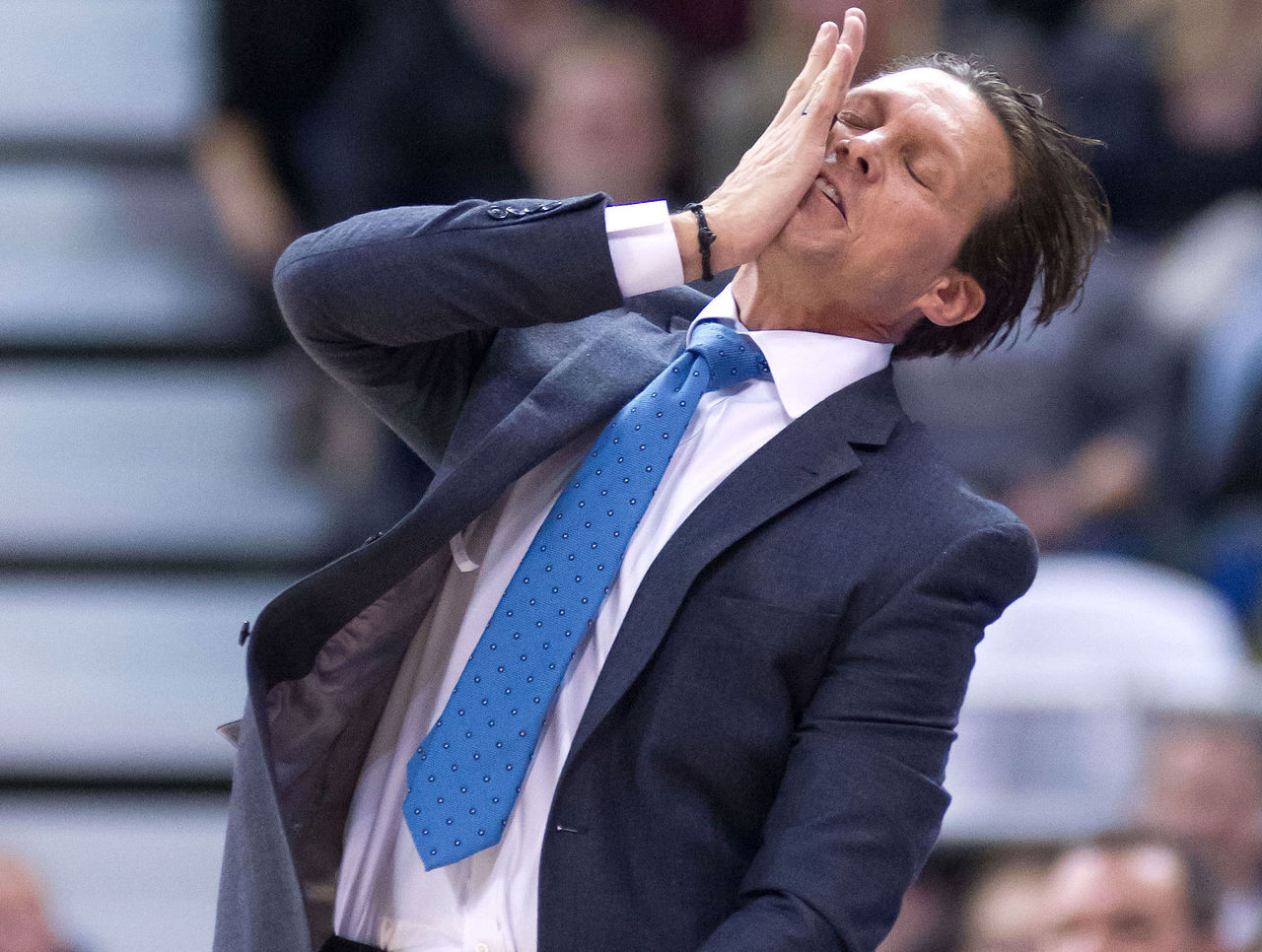Locker Room Access: The snake-bitten Jazz are surviving and thriving
The 2016-17 Utah Jazz are a fascinating study.
Looking to end the franchise's longest playoff drought (2012) since the early '80s, General Manager Dennis Lindsey enjoyed a successful offseason that included adding George Hill, Joe Johnson, and Boris Diaw to a young, frontcourt-heavy team.
Hill has played the best ball of his career in Utah, giving the Jazz the difference-making point guard they've longed for to partner with Gordon Hayward, Rudy Gobert, and Derrick Favors, but he's missed 24 of 37 games already due to toe and thumb injuries, as well as a recent concussion. Favors has missed 15 games, himself, while Hayward and Rodney Hood have combined to miss another 12.
Despite dealing with the most Value Over Replacement lost due to injury, however, Utah's managed a 22-15 start, sits fifth place in the Western Conference, and is 6.5 games clear of ninth. Barring a catastrophic collapse, the Jazz are going to the postseason, but watch them on any given night and look into the numbers, and you quickly realize they can be so much more than merely an average, young playoff team.
They're one of four teams - along with the Warriors, Spurs, and Clippers - to boast a top-10 ranking in both offensive and defensive efficiency, they own a top-six net rating, and they have four of the league's top-23 five-man units out of the 250 lineups that have logged at least 25 minutes together.
They have the size, length, shooting, defensive versatility, and depth to trouble the league's elite come spring, if only they can keep all of it healthy.
Here are some thoughts from inside Utah's locker room Thursday night in Toronto:
What Hill, Johnson, and Diaw have brought to the team

Quin Snyder: The truth is we really don't know, because of (the injuries). I think what George has given us is leadership and defense at the point guard position. If you look at some of the games where we've had Isaiah Thomas the other night, Kyle Lowry, Goran Dragic - those have been tough matchups for us. We hope George will have an impact on those matchups (Lowry, in particular, has feasted on the Jazz in two games without Hill, who defended the Raptors All-Star well in the playoffs last April).
In Joe's case, it's the versatility that we haven't had before. He's a player that's played on the perimeter for his career, but has the strength and the toughness to swing over to the 4.
Rodney Hood: It changed the dynamic of the team, just being around those guys, who have been through a lot in this league. Just to have that experience on the court with us.
Trey Lyles: It gave us some depth at the guard position and gave us some guys with playoff experience. They know the game, have been playing for a while, and they have experience playing with different guys. They can tell you the different ways that guys that played with them were effective. Having Boris here now helps me a lot. Playing the same position, and he's a big who can pass - he's more of a playmaker. That's something I try to incorporate myself. He gives me little pointers here and there.
The frustration of rarely being healthy

Gordon Hayward: It's frustrating for everybody - the person that's injured, the team, the coaches. But in the NBA, you've got to control what you can control, and how you prepare is how you perform.
Snyder: No one cares. Everybody has injuries. The bottom line is no one cares. When it gets to be February and they look back, they won't see that we were missing four starters - four starters - but no one cares. You can't let it impact you or influence you. We went through it last year (The Jazz were 8th in lost VORP in 2015-16). The biggest thing is for the team, collectively, to keep their spirit, and understand that the 'next man up' concept only works if the next man stands up.
How Gobert's rim protection affects his teammates' defense

Hayward: It changes the way you guard the other team as far as forcing them into the shot-blocker. It changes our game plan a little bit, knowing that he's going to be there. How we guard, how we go over or under pick-and-rolls, and if our wings are helping in or not - he definitely does change our game plan.
Despite Gobert limiting opponents to an anemic 42.7 percent conversion rate at the rim, The Stifle Tower faces 1.7 more attempts at the rim per game than any other player, which speaks to Hayward's point about forcing opponents into him.
Hood: I wouldn't say gamble, but we can be more aggressive. We can (defend) with more confidence on the perimeter when we know we've got a guy that can defend the rim like he's doing.
On Quin Snyder's well-documented intensity

Hayward: He's a passionate coach. He loves the game, he's a competitor, he loves winning. He wants to do everything he can to put us in a position to be successful. I think there is obviously a side of him, when it's not practice or a film session or something like that, where he's very easy to talk to. We have a great relationship. We talk about things besides basketball. All of that makes him a great coach.
Hood: He's always intense. In film, shootaround, everything. That's just who he is. He keeps us focused. We always know that we've got to be on point.
Lyles: He's a guy who takes coaching very seriously. He wants things done the right way. He's a basketball junkie. You can respect that and learn from that, because he's always intense and ready to go, and he expects the same from us. It's a good thing for young players to have a coach like that constantly pushing you. I think everyone has a good head on their shoulders to receive whatever he's saying and not let it get to them. He's just trying to make us better and help us out.